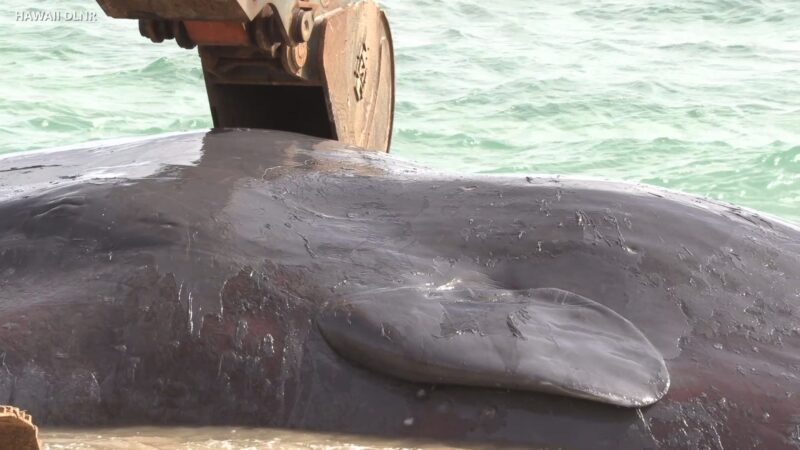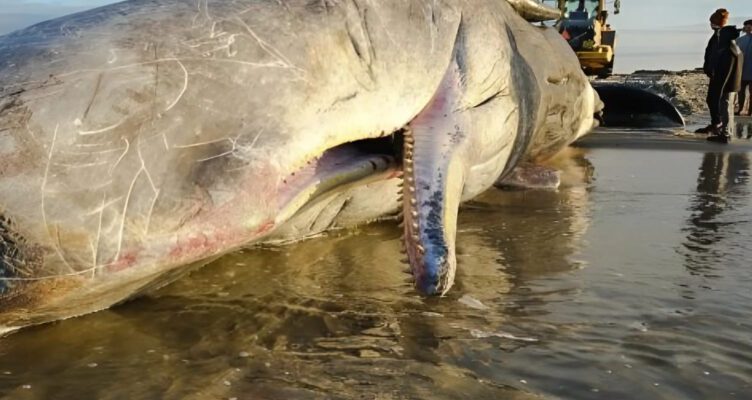Scientists were eager to determine the cause of the young sperm whale’s death after it washed up on a Spanish beach earlier this year. Upon discovering more than 30 kg (66 pounds) of plastic waste in its stomach, they believe they found the answer.
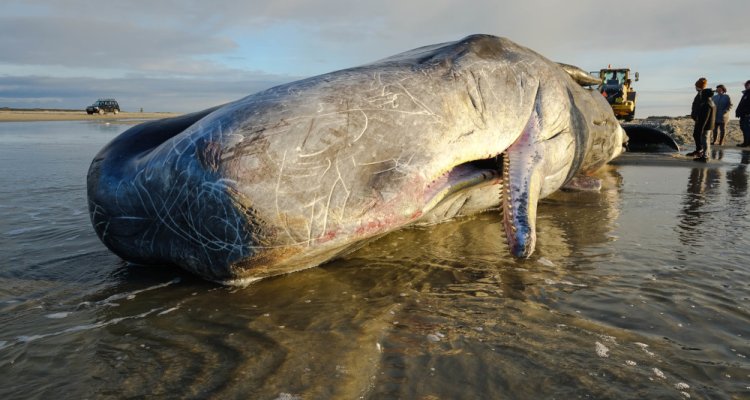
The ten-meter-long whale had ended up stranded on the sands of Cabo de Palos, in the Spanish region of Murcia.
Sperm whales typically feed on large squid, octopus, small sharks, and other sea life, but this whale had also ingested straw packages, plastic bags, string, nets, a drum rope, and a water container.
Experts hypothesized that the whale, unable to digest or eliminate the debris from its body, likely fell victim to a stomach-related condition.
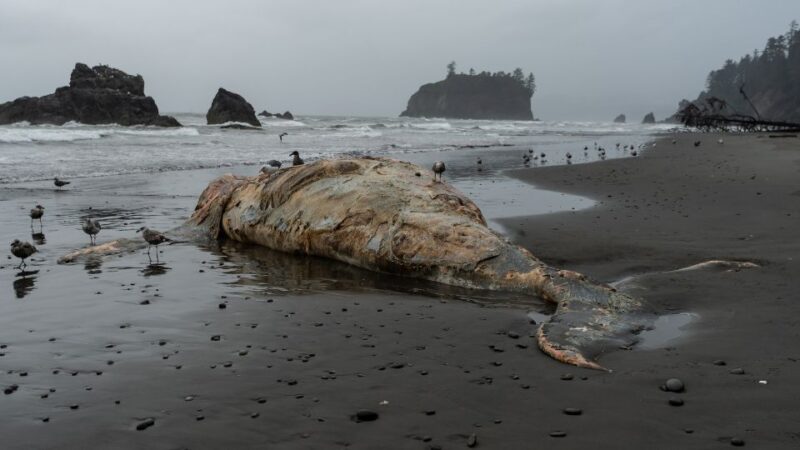
Consuelo Rosauro, Director General of the Environment in Murcia, stated: “The presence of plastic in our waters and oceans is one of the greatest threats to the protection of flora and fauna, as many animals become trapped in the waste or ingest large amounts of plastic material, which ultimately leads to their death.”
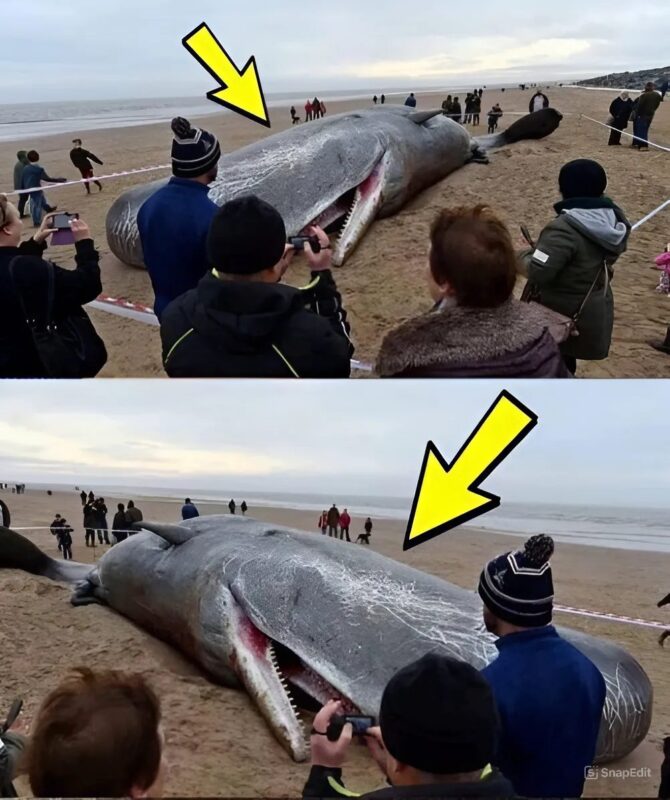
Today, approximately 150 million tons of plastic float in our oceans, and an additional 8 million tons are added to the water each year.
